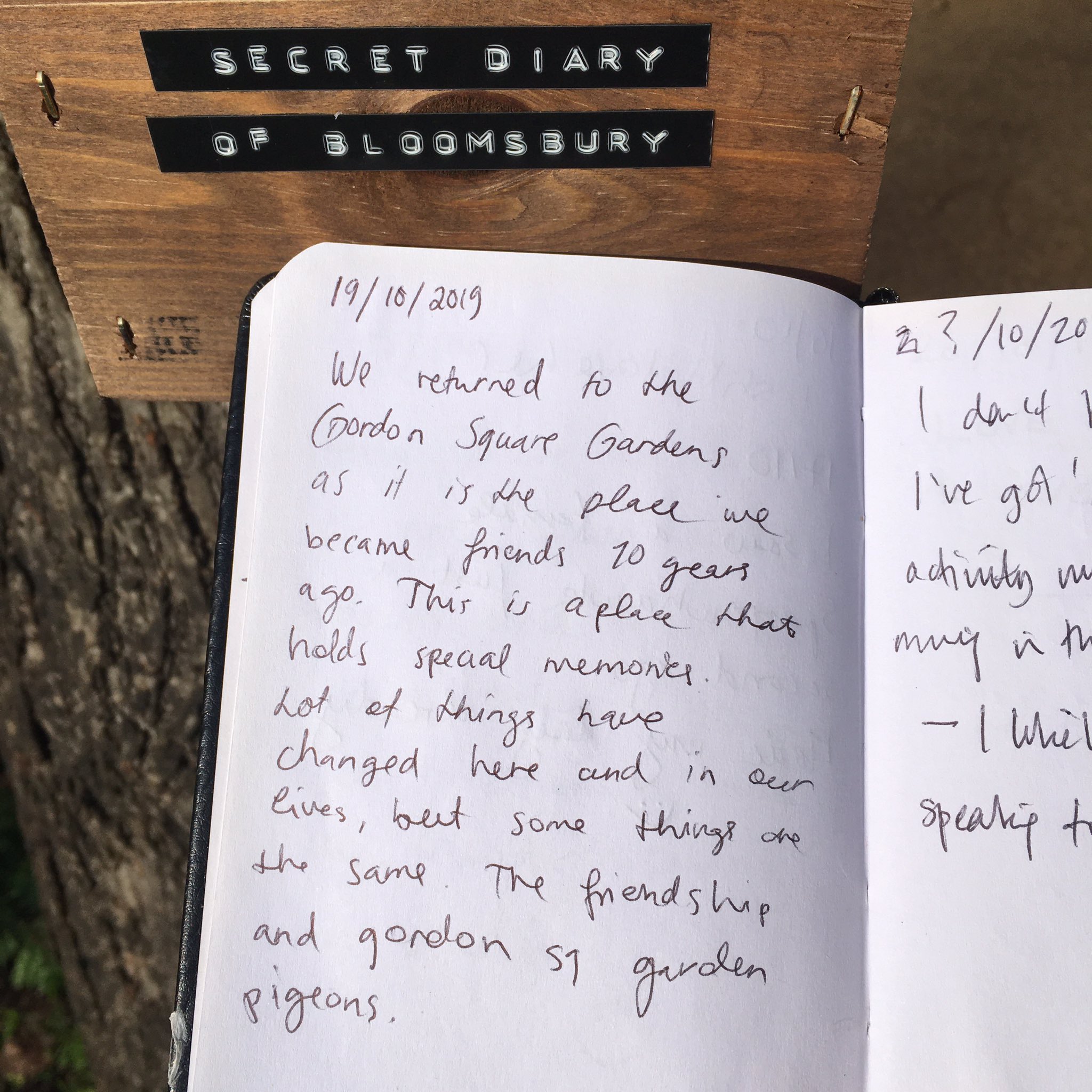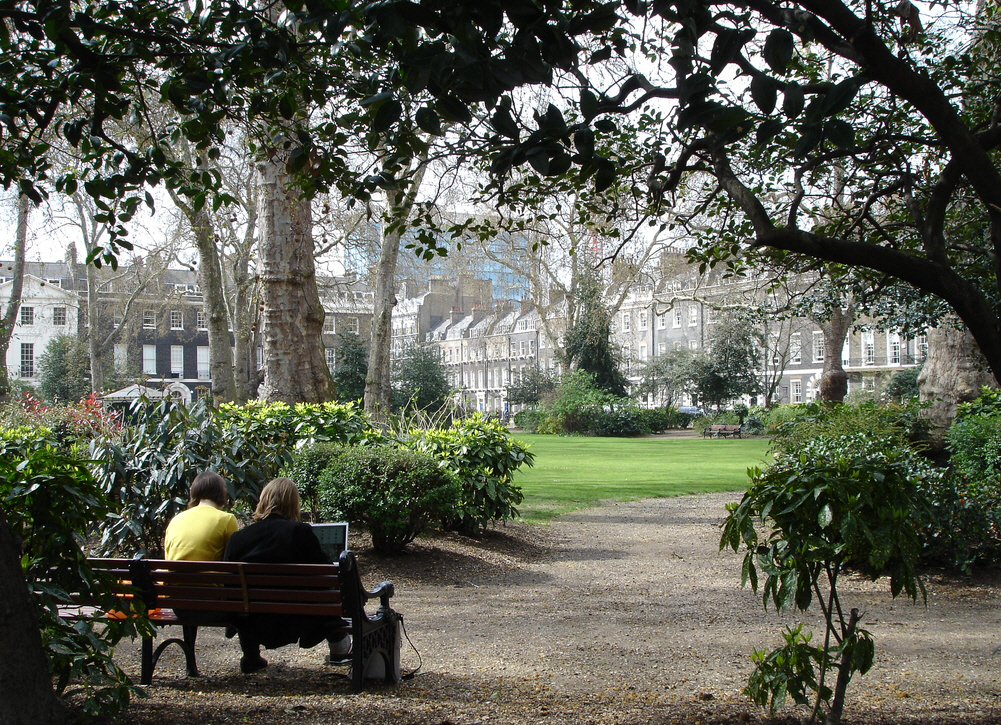ISABEL JACKSON reviews ‘The Secret Diary of Bloomsbury: Live!’ event from this year’s Bloomsbury Festival
‘It wasn’t just me. There are friends in the park that I’ll never meet, but their words fill the darkness, and cold turns to heat’ – Anonymous.
The Secret Diary of Bloomsbury is a project that was initially set up as a multi-site installation as part of the 2017 Bloomsbury festival. Three years later, the project is still going strong and continues to be highly successful. As part of the 2020 Bloomsbury Festival, a webinar was held to discuss the literary project, which entails diaries being placed inside bird boxes in Bloomsbury’s public spaces for anyone to write in. The initiative is a celebration of ordinary life and the idea that anyone can be a writer; all you need is a pen and a notebook. The project has fostered a community of writers who may never physically meet except within the pages of the hidden diaries.
The leaders of the project, Elizabeth Dearnley and Michael Eades, were fascinated with the everyday, yet powerful, act of writing. They describe the diaries as ‘anti’ Bloomsbury, emphasising the way in which they escape the literary infrastructure of the area, once home to the Pre-Raphaelite Brotherhood in the Victorian period and the Bloomsbury Group of the early 20th century. Sharing one’s soul with others in the diaries is, to them, an act of complete selflessness and generosity. Equally, however, many of the writers say ‘thank you’ in their diary entries, and are clearly grateful for the opportunity to share and confess in anonymity. As Dearnley described it, ‘you’re writing to nobody but you’re also writing to everybody.’ The diaries enable a process of both giving and receiving, of sharing with others but also gaining an outlet for one’s thoughts.

A common theme in the diaries is travel. Bloomsbury is captured as a place of ‘swirling transience,’ with people constantly passing through the area and perhaps pausing for a moment to write in Russell Square. Many of the project’s diary entries are focused on trying to navigate the city as a new, alien environment. The diaries become a place where cultures meet and where different languages and experiences unite. One person wrote, ‘I was just walking in the park and feeling so damn FREE,’ a powerful and intimate reaction to the experience of a freedom not accessible to women in the female writer’s home country. Several people return to the diaries each time they visit London – often after years away – and have figured as an integral part of how they experience the city.
Many people use the diaries to record their connection to Bloomsbury, particularly as a place of encounter. It becomes an intimate, personal area for many writers, who recount their experiences of love and heartbreak, often in connection to this part of the city. As one individual writes, ‘I came here to tell the trees a story of a broken heart nobody else can know about.’ There is a sense that pain and loss are alleviated by the gift of a silent audience that the diaries offer.
In 2018, a spin-off project took place to record women’s experiences of the city. Named ‘The Flâneuse Diaries,’ a variety of different women were given a diary for the duration of the Bloomsbury Festival to record their observations of the area. One extract recalled an encounter with Bloomsbury women of the past, as one of the ‘flâneuses’ witnessed the unveiling of a memorial plaque to the scholar and female rights activist Dr Helen Pankhurst. There is a voyeuristic feel to some of the diaries, as the women watch other people watch them, acutely aware of their own existence to others in the city rather than being just invisible observers.

In March, lockdown imposed a dramatic change on the reading and sharing of the diaries, as people left the city and tourists stopped passing through. There were considerably less entries, and the focus shifted from recording the experience of travel to the writers expressing their longing to leave London. Furthermore, there was a sense of the writers becoming a part of history themselves, recording these historic times through their entries.
At the end of the webinar, some of the attendees shared extracts from their own diaries. These ranged from observations of nature to nostalgia for Bloomsbury, leaving in a hurry and thinking ‘only of flight’ as lockdown took place. One writer shared her imaginings of different individuals in lockdown, from the doctor who professed ‘we were working this hard all along’ in response to an increased appreciation of their work during the pandemic, to a single woman living alone whose ‘skin aches’ for contact. It seems that, more than ever, writing has become a way for us to connect with one another, and a real source of consolation in difficult times.
Featured image source: Wikipedia.





